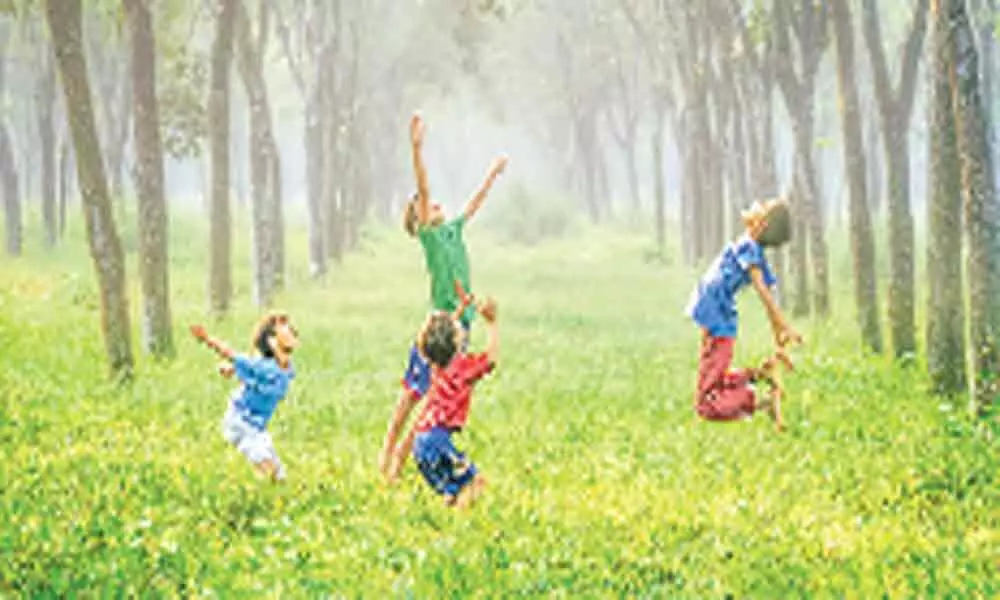Playing may boost complex thinking, social skills in kids

Any activity that gets children thinking and acting spontaneously outdoors without needing adult control can help them develop complex thinking abilities, social skills, and creativity, according to a review of studies which may lead to innovative play spaces in childcare centres and schools.
Melbourne: Any activity that gets children thinking and acting spontaneously outdoors without needing adult control can help them develop complex thinking abilities, social skills, and creativity, according to a review of studies which may lead to innovative play spaces in childcare centres and schools.
The study, published in the journal PLOS One, assessed the impacts of nature play on the health and development of children between two and 12 years of age, and found that the activities improved children's complex thinking skills, social skills, and creativity.
"Nature play is all about playing freely with and in nature. It's about making mud pies, creating stick forts, having an outdoor adventure, and getting dirty," said Kylie Dankiw, study co-author from the University of South Australia (UniSA).
In the review, the researchers consolidated 16 studies which involved unstructured, free play in nature (forest, green spaces, outdoors, gardens) and included natural elements (highly vegetated, rocks, mud, sand, gardens, forests, ponds and water). They determined the impact of nature play on children's health and development.
According to the review, these activities improved children's levels of physical activity, health-related fitness, motor skills, learning, and social and emotional development.
It also showed that nature play may improve thinking and learning outcomes, such as the children's levels of attention and concentration, punctuality, settling in class, constructive play, social play, as well as imaginative and functional play.
"In recent years, nature play has become more popular with schools and childcare centres, with many of them re-developing play spaces to incorporate natural elements, such as trees, plants and rocks," Dankiw said.
According to the researchers, the current study is the first to rigorously, transparently and systematically review the body of work on nature play and show the impact it has on children's development. "For early childhood educators, health practitioners, policymakers and play space designers, this is valuable information that may influence urban play environments and re-green city scapes," Dankiw said. Playing in nature, children can build their physical capabilities -- their balance, fitness, and strength, the researchers said.
"And, as they play with others, they learn valuable negotiation skills, concepts of sharing and friendships, which may contribute to healthy emotional and social resilience," Dankiw added.

















